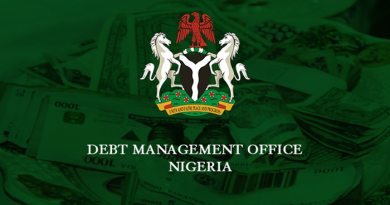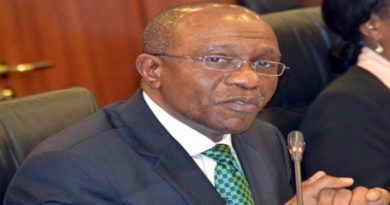Minister of Finance, Mrs. Kemi Adeosun’s response to frequently asked questions on Nigeria’s Eurobond issuance
How much has Nigeria raised in the international capital markets and at what price?
Nigeria has raised a total of US$3 billion. The Notes comprise a US$1.5 billion 10-year series and a US$1.5 billion 30-year series. The 10-year series will bear interest at a rate of 6.5%, while the 30-year series will bear interest at a rate of 7.625%.
Why have you raised two different tranches of funding? How do they differ?
By raising US$1.5 billion of 30-year notes, Nigeria has emulated a number of our international contemporaries, including Brazil, South Africa, Argentina and Egypt to issue long dated debt as the basis for long term infrastructure financing and to establish a benchmark for the private sector to extend the tenure of its own financing. This is critical to delivering an environment within which both the government, and the domestic private sector, can rapidly enhance its ability to fund investments in infrastructure projects and broader project finance. The full US$1.5 billion proceeds of the 30 year notes are allocated to 2017 capital projects.
Nigeria has raised a further US$1.5 billion of 10 year notes, and following the current issue, we now have a full ‘basket’ of international debt notes, including 5 year, 10 year, 15 year and 30 year issuances trading in the market. This provides international investors will the full range of tradeable options in Nigeria’s international debt. Of the US$1.5 billion of 10 year notes, US$1 billion will be allocated to the 2017 capital budget, under our US$2.5 billion approval from the national assembly, with the balance of US$500 million allocated to refinancing of domestic debt, in line with our strategy to re-balance our domestic/international debt profile.
Why are you re-balancing the debt portfolio and increasing international borrowing?
Over the last 5 years, Nigeria has been overly focused on domestic debt, which is short term and high cost. This means that we pay too much, and have to regularly refinance existing debt rather than having the security of longer term instruments. You can see this clearly reflected in our debt service to revenue ratio, which @ 45% as of Third Quarter (Q3) 2017, is higher than we would like.
Having returned the economy to growth in 2017 and secured a stable and liquid exchange rate regime, we are focused on addressing this issue by diversifying our sources of debt to achieve an optimal balance. So far, we have moved our domestic/international debt ratio from 18:82 to 23:77 and we expect this to improve to circa 27:73 by year end, with an ultimate target of 40:60. This will deliver significant savings in our debt service costs, with provisional estimates demonstrating savings of up to N91 billion in 2018 alone.
What will the proceeds of the financing be used for? Can you provide specifics?
The proceeds will be split between 2017 budget capital projects (US$2.5 billion) and re-financing some of our short term domestic debt (US$500 million).
Capital projects under the 2017 budget include road, rail, power and housing projects which are crucial to the delivery of the economic recovery and growth plan.
How do the 30 year notes benefit Nigeria?
They demonstrate strong investor confidence in the Nigerian economy, and growth story, while providing the long term funding required to finance infrastructure projects at affordable interest rates. The provision of infrastructure is critical to the long term sustainability of our economic growth, and will provide a more productive economy for current and future generations of Nigerians. They also provide a benchmark for longer term private sector funding.
Why did you not raise the full amount of US$5.5 billion approved by the national assembly?
The National Assembly approved two separate resolutions. One for US$2.5 billion to fund capital expenditure in the 2017 budget and one to re-finance existing domestic debt of US$3 billion, which is not time bound. Our intention for this issuance was to meet our short term requirement to fund US$2.5 billion for the 2017 budget.
Following significant investor interest of over US$11 billion, we brought forward a further US$500 million of funding towards the refinancing of existing domestic debt and will assess options for concluding the refinancing process in the New Year. Restricting this issuance to US$3 billion also enabled us to optimise the price of the notes, which at 6.5% (10-year) and 7.625% (30-year) are significant improvements to our existing portfolio.
Honourable Minister of Finance, Mrs. Kemi Adeosun’s Message sheet
Nigeria is delivering fundamental economic reform for long term inclusive growth
- We have returned the economy to growth, with 0.55% growth in Second Quarter (Q2) 2017 and 1.40% growth in Third Quarter (Q3) 2017, demonstrating continued improvement and momentum.
- Agriculture and manufacturing are leading the economic rally, demonstrating a diversified economic growth story.
- The hard decisions we have made, and continue to make are establishing the basis for sustainable long term growth, that reduces our exposure to oil price and production shocks.
- Nigeria is NOT an oil economy. We must benchmark ourselves against Mexico and other oil producers with a diversified economic base.
- Our focus on infrastructure investment is essential to delivering an enabling environment for business, and our population. We cannot abdicate this responsibility.
- Our debt strategy delivers the capital we need for infrastructure investment. Our debt strategy is working
- Nigeria is establishing a strong position in international capital market, with regular issuances that have been very well received by the international investor base.
- US$1 billion Eurobond in February 2017 at 7.875% over 15 years extended the tenure of our international debt profile successfully and was nearly 8 times oversubscribed, leading to a successful follow up issuance of US$500 million in March 2017.
- US$1.5 billion of 30 year Eurobond’s issued in November 2017, further extending the tenure of our international debt, and priced at7.625%, which is a significant discount to the February offer, demonstrating improving confidence in Nigeria’s debt.
- US$1.5 billion of 10 year Eurobond’s issued in November 2017 at6.5%, which is well inside previous pricing.
- The total offer had demand of US$11.4 billion, which is nearly four (4) times oversubscribed.
- Our debt portfolio is being rebalanced to spread our exposure to achieve a more efficient balance between domestic and international debt and reduce our overall cost of borrowing.
- By successfully extending the tenure of our international debt portfolio to 30 years, we are establishing the long term financing that is essential for infrastructure development.
We must focus on non-oil revenue
- Nigeria has one of the lowest tax to Gross Domestic Product (GDP) ratio’s in the world at 6%. We cannot sustainably grow the economy without addressing this.
- Our revenue weakness, and the high cost of short term domestic debt are the core cause of our high debt service to revenue ratio.
- Our debt service to revenue ratio as at Q3 2017 was 45% and not above 60% as reported in the media. We believe at 45% it is too high, and we expect this to continue to improve in 2017/18 as our revenue initiatives deliver.
- Our tax amnesty (VAIDS) is delivering strong results and will establish the basis for a much more sustainable revenue base going forwards. Change is happening we must stay the course
- It takes time to make fundamental changes to our economic model. Achieving a full reset will take even longer, but we are seeing strong, green shoots of success.
- We must think long term to address the fundamental challenges facing our economy. Establishing a 30-year financing portfolio provides the basis for long term infrastructure funding, which will, in turn, provide a benchmark for the private sector to extend its own financing tenures.
- Establishing long term funding will enable us to build the infrastructure that we, and our children, will benefit from for the next 50 years.




